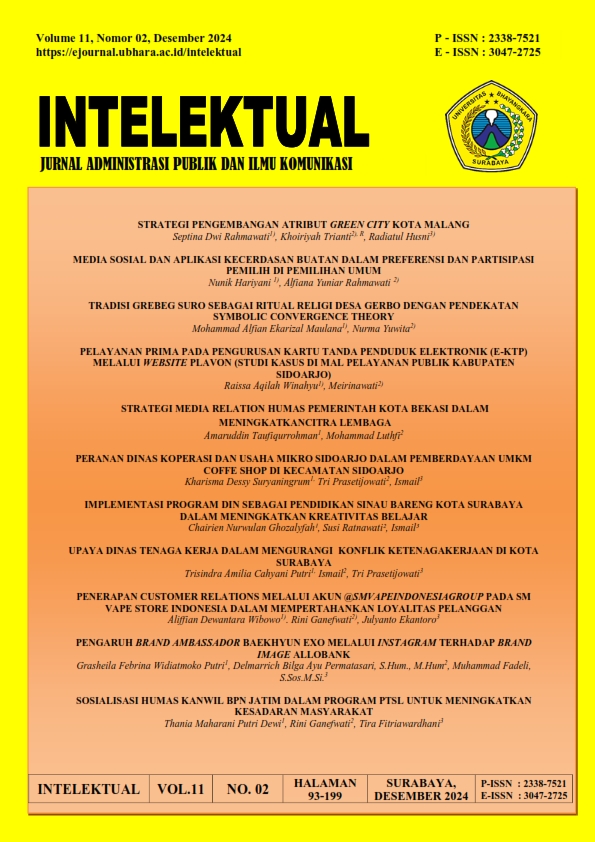Strategi Media Relation Humas Pemerintah Kota Bekasi dalam Meningkatkan Citra Lembaga
Main Article Content
Abstract
Government public relations has a very crucial role in maintaining a positive image of the institution, one of which is through media relations strategies. This research aims to determine the Bekasi City Government Public Relations media relations strategy in improving the institution's image referring to media relations strategy theory with three indicators; managing relationships, developing strategies, and developing networks. The research approach used is qualitative with a case study method. Data collection through interviews, observation and documentation. The research results show that Bekasi City Government Public Relations implements a media relations strategy through intensive communication with the media both verbally and non-verbally, carrying out media relations activities such as coffee mornings, press conferences and press releases. In developing the strategy, several efforts have been made, such as creating new concepts, providing the latest information, becoming a valuable resource, and following up on negative news. Meanwhile, at the network development stage, collaboration has been carried out with students, the police, Gojek application providers and the media. This research provides implications for scientific development, especially public relations and has a practical impact in implementing public relations activities through media relations strategies.
Article Details

This work is licensed under a Creative Commons Attribution-NonCommercial 4.0 International License.
Authors who publish with Intelektual: Jurnal Administrasi Publik dan Ilmu Komunikasi agree to the following terms:
- The author retains copyright licensed under Creative Commons Attribution-NonCommercial 4.0 (CC BY-NC 4.0), which allows others to remix, adapt, and expand on the author's work non-commercially, and even if someone else's new work must also acknowledge the author and is non-commercial, they do not need to license their derivative works on the same terms.
- Authors are permitted and encouraged to post their work online (e.g., in institutional repositories or on their websites) before and during the submission process, as this can lead to productive exchange, as well as earlier and greater citation of the published work ( See Impact of Open Access). Authors can archive preprints and postprints or publisher/PDF versions.

